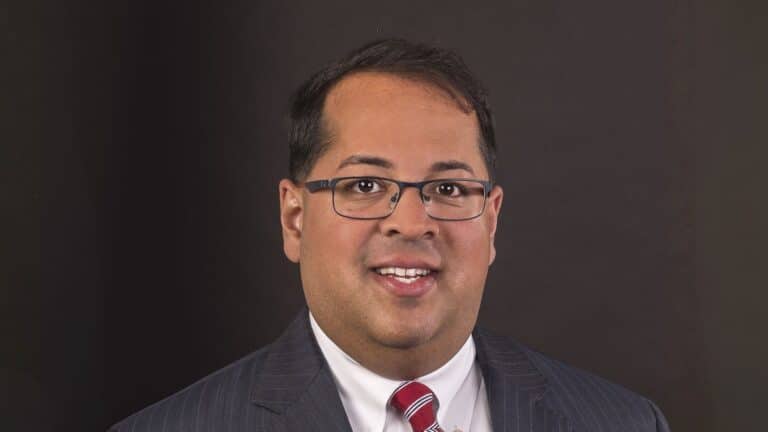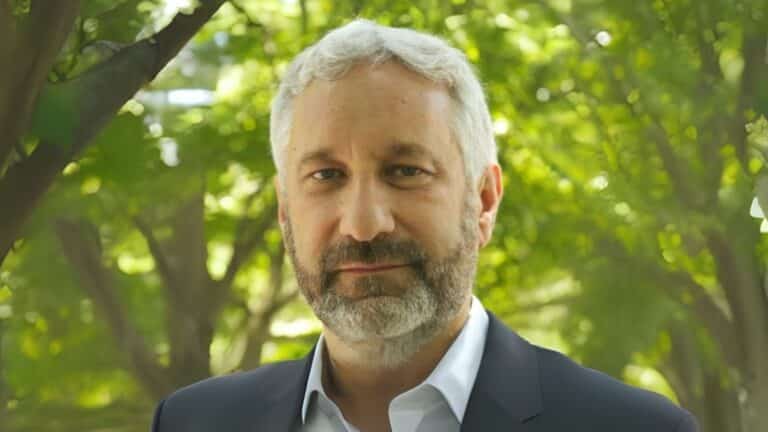‘Toothless’ sanctions
Why the world’s largest waste management company made a $3 billion bet on the US.
Current Access Level “I” – ID Only: CUID holders, alumni, and approved guests only
Building a low-carbon future will bring significant change to the U.S. economy, especially to employment as alternative forms of energy increasingly take hold. And to go smoothly, that transition will require sound public policy and public support.
In this edition of Columbia Energy Exchange, host Bill Loveless talks to Richard Trumka, the president and CEO of the AFL-CIO, and former U.S. Energy Secretary Ernest Moniz, the president and CEO of the Energy Futures Initiative. Earlier this year, their organizations formed the Labor Energy Partnership to promote energy policies that promote economic, racial and gender equity based on quality jobs and the preservation of workers’ rights, all the while addressing the growing climate crisis.
In exclusive podcast discussion, President Trumka and Secretary Moniz explain a new report by the Labor Energy Partnership that lays out the opportunities and pitfalls of such sweeping changes in the economy. The report, called “Energy Transitions: The Framework for Good Jobs in a Low-CarbonFuture,” makes the case that this industrial transition is both different from those in the past and urgently needed because of the existential threat of climate change.
The report opens by acknowledging that industrial transitions have rarely been smooth. In fact, it notes they have been typically marked by community and worker dislocations with significant regional disparities, disproportionate impacts on minority communities, and fraying of existing social institutions.
The AFL-CIO is the largest federation of unions in the U.S., and the Energy Futures Initiative is a Washington-based non-profit dedicated to promoting a clean-energy future.
Richard Trumka was elected president of the AFL-CIO in 2009 after having served as secretary treasurer of the federation since 1995. Previously, he was president of the United Mine Workers from 1982 to 1995.
Ernest Moniz founded the Energy Futures Initiative in 2017. He is also the co-chair and CEO of the Nuclear Threat Initiative. Dr. Moniz was the U.S. energy secretary from 2013 to 2017 and an under secretary at the U.S. Department of Energy from 1997 to 2001.
A long-time member of the faculty at the Massachusetts Institute of Technology, he was also founding director of the MIT Energy Initiative.
The Federal Energy Regulatory Commission (FERC) regulates the United States’ energy transmission, pipeline networks, and wholesale rates for electricity. For much of its history, FERC was a little-known...

Around the globe, and here in the United States, energy markets face huge uncertainties. They include everything from rising geopolitical tensions to a wave of new liquefied natural...

Elected officials face huge challenges when it comes to energy policymaking. They have very little time to learn complicated, nuanced issues. They're bombarded by information — some of...

The ten years since the Paris Agreement was signed at the UN Climate Change Conference, COP 21, have been the ten hottest years on record. And the outcome...

Last month, the Trump administration imposed fresh sanctions on Russia’s two largest oil companies, Rosneft and Lukoil, signaling a renewed desire to drive Moscow to the negotiating table in its war against Ukraine. But although these measures have the potential to harm the Russian economy, just how much damage they inflict will depend largely on one actor: Beijing. China bought almost half the oil Russia exported in 2024, evading Washington’s existing restrictions in the process. And new sanctions alone will do little to push China into significantly reducing its purchases.


Connecticut needs an honest debate, and fresh thinking, to shape a climate strategy fit for today, not 2022.

President Donald Trump’s impulsive, go-it-alone approach is uniquely ill-suited to the long-term and cross-cutting nature of the challenge that China poses.
